Polonijna Biblioteka Cyfrowa (PBC) powstała w 2012 r. w ramach projektu „Współpraca z Polonią i Polakami za granicą” ogłoszonego przez Ministerstwo Spraw Zagranicznych. Na przestrzeni ostatnich lat Biblioteka była i jest finansowana z kilku źródeł, a przede wszystkim z projektów pozyskiwanych z: Senatu RP, Ministerstwa Kultury i Dziedzictwa Narodowego, a także z Ministerstwa Nauki i Szkolnictwa Wyższego jako tzw. Specjalistyczne Urządzenie Badawcze.
Kustoszem i założycielem Biblioteki jest prof. Dariusz Kuźmina z Wydziału Dziennikarstwa, Informacji i Bibliologii UW, a administratorem dr Zdzisław Dobrowolski. Zespół PBC w każdym roku jest tworzony ze względu na kierunki badawcze, które zyskały pozytywną ocenę w konkursach finansujących zachowanie i upowszechnianie polskiego dziedzictwa poza granicami kraju.
Biblioteka stała się już uznaną i wiodącą płaszczyzną wymiany informacji i dogodną platformą do dalszych badań, do promowania i popularyzowania działalności Polonii, a także jej wspólnym, niezwykle nowatorskim i jednoczącym atrybutem tożsamościowym.
Powodem założenia PBC oraz jej głównym celem jest zabezpieczenie oraz udostępnianie zbiorów organizacji zrzeszających polską diasporę na świecie, które nie dysponują środkami na digitalizację poloników oraz ich prezentację w Internecie. A są one bezcenne z punktu widzenia historii Polski oraz dorobku intelektualnego i kulturalnego społeczności emigracyjnych ostatnich dwóch wieków. Działalność PBC stanowi dopełnienie przedsięwzięć największych ośrodków prowadzących digitalizację polskiego dziedzictwa kulturowego. Dzięki współpracy z Wydziałem Dziennikarstwa, Informacji i Bibliologii (do 2016 r. Instytutu Informacji Naukowej i Studiów Bibliologicznych Uniwersytetu Warszawskiego) z wieloma instytucjami polonijnymi na całym świecie, w zbiorach PBC znajdują się niezwykle wartościowe dla historii i nauki polskiej archiwalia, książki, fotografie oraz czasopisma.
Polonijna Biblioteka Cyfrowa jest instytucją unikatową. Zakresu jej zbiorów nie da się scharakteryzować tak łatwo, jak w przypadku większości polskich bibliotek cyfrowych. Misją PBC jest zabezpieczanie oraz udostępnienie poloników posiadanych przez różnego typu organizacje i instytucje polskie i polonijne funkcjonujące na obczyźnie, a także zgromadzone przez kolekcjonerów prywatnych. Według danych MSZ z 2012 r. na świecie istnieje ponad dwa tysiące organizacji zrzeszających polską diasporę. Zespół Polonijnej Biblioteki Cyfrowej współpracuje bezpośrednio z ponad dwudziestoma organizacjami polonijnymi na czterech kontynentach.
Działalność Biblioteki ma charakter uniwersalny, a w stosunku do największych ośrodków digitalizujących i udostępniających polskie dziedzictwo kulturowe, takich jak np. POLONA, stanowi istotne uzupełnienie. PBC oferuje bowiem obiekty niedostępne w Bibliotece Narodowej, a stanowiące często ogromnej wagi źródło historyczne dokumentujące losy Polaków poza krajem w XIX i XX w. Przykładem niech będzie kolekcja tygodnika „Orzeł Biały” wydawanego jeszcze w ZSRR przez Armię Polską na Wschodzie. Dlatego wartość zbiorów PBC powinno się określić jako bezcenną.
Polonijna Biblioteka Cyfrowa udostępnia szeroki zestaw unikatowych dokumentów wraz z publikacjami wprowadzającymi w tematykę Polonii. Obecnie zbiory liczą ponad 25 000 jednostek, z których korzysta miesięcznie średnio ok. 15 000 czytelników. Kolekcja podzielona jest na cztery główne kategorie:
Materiały pozyskiwane są w trakcie kwerend prowadzonych w różnych zakątkach globu, ze szczególnym uwzględnieniem dużych skupisk Polonii. Warto wymienić chociażby Anglię, Francję, Czechy, Izrael, Australię, USA, Argentynę, Brazylię, Chile, Meksyk, Peru czy Nową Zelandię.
PBC przyczynia się więc do ocalenia rozproszonego polskiego dziedzictwa dokumentacyjnego i piśmienniczego. Upowszechnia również wiedzę na temat znaczenia działalności Polonii na świecie oraz jej wkładu w rozwój lokalnych społeczności.
Wszyscy zainteresowani dziedzictwem kulturowym Polonii otrzymują w dogodnej, wirtualnej architekturze pełne spektrum przeszłych i najnowszych dokonań naszej diaspory. Mają bezpośredni, bezpłatny dostęp on-line do zdigitalizowanych materiałów źródłowych (m.in. dokumentacja aktowa, źródła drukowane oraz wyjątkowo cennych zabytki piśmiennictwa emigracyjnego, w tym literatury), mających trwałą wartość historyczną, kulturową lub bibliofilską.
Zdecydowaną większość zbiorów stanowi prasa diaspory polskiej z XX w. Gazety te to prawdziwe kapsuły czasu chroniące to, co ulotne – aktywność społeczną, polityczną i kulturalną Polonii.
Wśród periodyków, które PBC posiada w całości lub prawie w komplecie wymienić należy tygodniki polskich osadników w Brazylii: „Lud”, „Gazetę Polską w Brazylii”. To właśnie prasa z Parany stanowi największą część udostępnianych przez PBC skanów. To cenna pomoc dla rozwijających się coraz bardziej studiów slawistycznych nie tylko w Kurytybie, ale i na innych uczelniach. Z tego zbioru korzystają też badacze polskiego dziedzictwa kulturowego. W ten sposób PBC uzupełnia polskie zbiory o ten wielki, a nieznany w Kraju dorobek wydawniczy. Ratuje go przed utratą i jednocześnie promuje dziedzictwo narodowe.
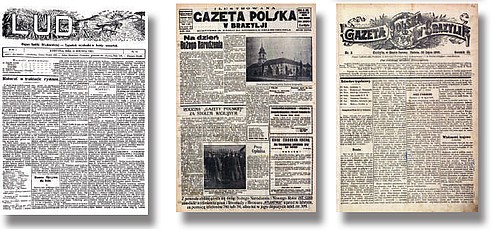
Z prasy ukazującej się w Europie warto wymienić „Les Amis de la Pologne”, „Notre Pologne”, „Wiarusa Polskiego” oraz „Pod Prąd”. Pierwszy periodyk był organem francuskiego towarzystwa noszącego tę samą nazwę (Les Amis de la Pologne – Przyjaciele Polski), działającego i publikującego swoje czasopismo w języku francuskim przez cały okres dwudziestolecia międzywojennego, do czerwca 1940 r. Było to główne źródło informacji o Polsce dla prasy francuskiej. Tytuł ten miał swój odpowiednik dla młodszych. To właśnie „Notre Pologne” przez 9 lat swojego funkcjonowania kształtowało wiedzę o Polsce wśród francuskiej młodzieży.
Znajdujący się w zbiorach PBC „Wiarus Polski”, to z kolei pierwsze pismo polonijne wydawane w Westfalii i Nadrenii. Założone zostało w 1890 r. w Bochum przez księdza F. Lissa. Periodyk jest w fatalnym stanie – dzięki digitalizacji zachowany został dla przyszłych pokoleń.
Pismo „Pod Prąd” wydawane było przez grupę internowanych żołnierzy z obozu we Fryburgu (Szwajcaria). Dwutygodnik miał dać odpór propagandzie komunistycznej nawołującej do powrotu do Polski, a dziś stanowi cenne źródło informacji dla badaczy tamtego okresu.
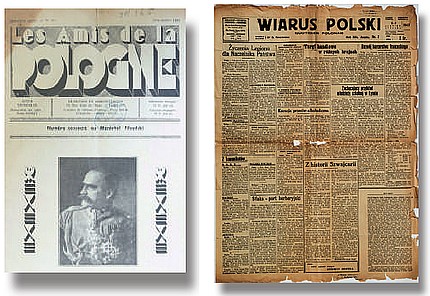
Na uwagę zasługują też periodyki związane z obecnością Armii Polskiej w ZSRR, a później w Iranie, Iraku i Palestynie, a wraz z nią cywilów. Spośród tych wydawnictw Polonijna Biblioteka Cyfrowa udostępnia między innymi „Skauta: Czasopismo Związku Harcerstwa Polskiego Wschód” wraz z dodatkiem „Zuch”.
Część kolekcji stanowią efemerydy. W dużej mierze są to druki, które ukazały się na terytorium Palestyny (najczęściej w Jerozolimie) i związane są z Polską Armią na Wschodzie i instytucjami, organizacjami działającymi w jej otoczeniu. Na przykład „Uśmiech: Jednodniówka Szkół Młodszych Ochotniczek” – maszynopis obejmujący aż 190 stron, wydany nakładem Szkoły powszechnej Młodszych Ochotniczek w Jerozolimie w 1946 r. Dokument ten jest jednym z niewielu namacalnych śladów działalności kulturalnej polskiej zbiorowości wychodźczej przebywającej na Bliskim Wschodzie w latach 40. XX w.

W zbiorach PBC można znaleźć nie tylko periodyki z pierwszej połowy XX w. Biblioteka udostępnia również polonijną prasę współczesną. „Gazetka Dom Polski” jest organem wydawniczym Stowarzyszenia Rodzin Peruwiańsko-Polskich „Dom Polski”, powstałego w 1983 r. w celu podtrzymywania kultury, obyczajów i tradycji polskiej wśród emigrantów. Innym przykładem prasy współczesnej są „Wiadomości Polskie”, pismo Polskiego Narodowo-Kulturalnego Centrum „Jedność” na Kubaniu (Rosja), czy „Głos”, polska gazeta wychodząca w czeskim Cieszynie.
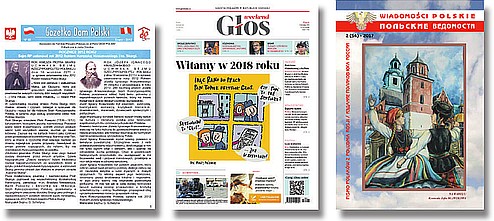
W grupie tej znajdują się przede wszystkim druki opublikowane poza krajem w pierwszej połowie XX w. Znajdziemy tu m.in. publikacje wydane przez oficyny polonijne w Ameryce Południowej, czy książki autorów obcych traktujące o Polonii. Warto wymienić chociażby trzy pozycje: Racjonalną gospodarkę hodowlaną w Paranie. Opracowanie specjalne dla kolonistów Stanisława Górniaka (Kurytyba 1924), Szymona Kosyniera: wielkiego bohatera Parańskiego Józefa Stańczewskiego, wydającego pod pseudonimem Fredecensis (Kurytyba 1923) czy Na Amazonce i wschodnim Peru Mieczysława Bohdana Lepeckiego (opublikowaną w wydawnictwie Książnica-Atlas we Lwowie w 1931 r.).
Wśród druków zwartych pochodzących z Ameryki Południowej znajdują się pozycje traktujące o rolnictwie, religijne oraz kierowane do dzieci, czy edycje literatury pięknej np. poezji Piotra Sicińskiego Echo Brazylii: utwory wierszem.
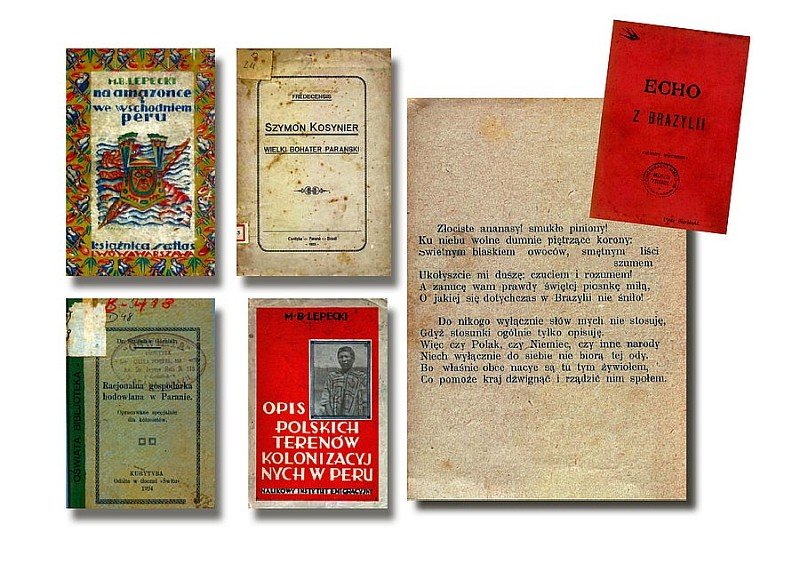
Wyróżniającą się grupę stanowią wydawnictwa związane ze stacjonowaniem Armii Polskiej na Bliskim Wschodzie. Np. Z polskiej niwy: zbiór pieśni polskich wydany w opracowaniu Władysława Wargowskiego w Tel Awiwie w 1941 r., Bajki biało-czerwone Anatola Krakowieckiego, które ukazały się w 1944 r. oraz Śląsk Opolski Mariana Kamila Dziewanowskiego, publikacja wydana w 1945 r. nakładem Oddziału Kultury i Prasy 2. Korpusu w Rzymie.
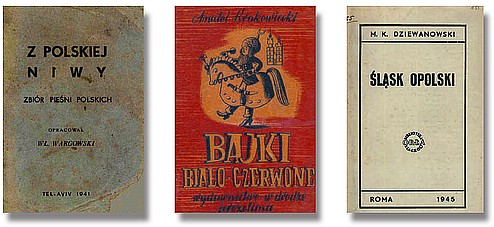
Warto wspomnieć o dwóch najstarszych publikacjach znajdujących się w PBC. Pierwsza z nich to rzadka edycja z 1693 r. Singularia Qvædam Polonica…Mikołaja Chwałkowskiego. Drugim starodrukiem jest Prawdziwy Stan Duchowienstwa w Polszcze… Wojciecha Skarszewskiego (Warszawa 1776). Bardzo ciekawą pozycją jest także druk Voyage en Allemagne et en Pologne, commencé en 1776 par M. de L.S.M.A.S.D.P. (Paryż 1784). Są to wspomnienia francuskiego szlachcica z podróży do Niemiec i Polski, stanowiące bezcenny materiał dokumentujący postrzeganie Rzeczypospolitej przez cudzoziemców w drugiej połowie XVIII w.
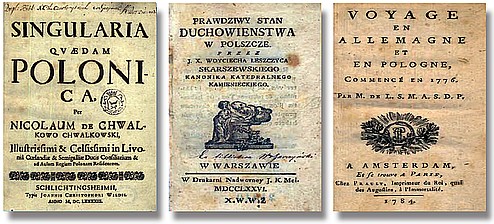
W zbiorach PBC znajdują się również materiały archiwalne, choć nie stanowią one głównego trzonu Biblioteki. Warto jednak wymienić kilka cenniejszych przykładów. W kolekcji znajduje się chociażby Archiwum Ojców Franciszkanów z argentyńskiego Martin Coronado. Zbiór poświęcony jest głównie działalności polskiego duchowieństwa w Argentynie, której początki sięgają XIX w. Dokumenty dostępne są dzięki współpracy z Ojcami Franciszkanami z Martin Coronado, obecnie centrum religijnego społeczności polskiej.
Bardzo ciekawą pozycją jest „Archiwum Jamajskiego” Józefa Obrębskiego. Jeden z najbardziej zasłużonych polskich etnologów w latach 1946–1948 prowadził z ramienia Londyńskiej Szkoły Ekonomii (London School of Economics) pionierskie badania antropologiczne na Jamajce. Zmiany polityczne w Polsce po 1945 r. uniemożliwiły uczonemu na powrót do ojczyzny.
Ostatecznie, odrzucając liczne propozycje uniwersytetów angielskich, zdecydował się na wyjazd do Stanów Zjednoczonych Ameryki. Polonijna Biblioteka Cyfrowa udostępnia jego niepublikowane materiały z jedynych badań etnograficznych, jakie kiedykolwiek zostały przeprowadzone na Jamajce. Główną część „Archiwum Jamajskiego” stanowią maszynopisy, które zawierają obserwacje i wnioski uczonego, wynikające ze studiów nad dwiema rodzinami, zatytułowane Bull Savannah i Warsop.
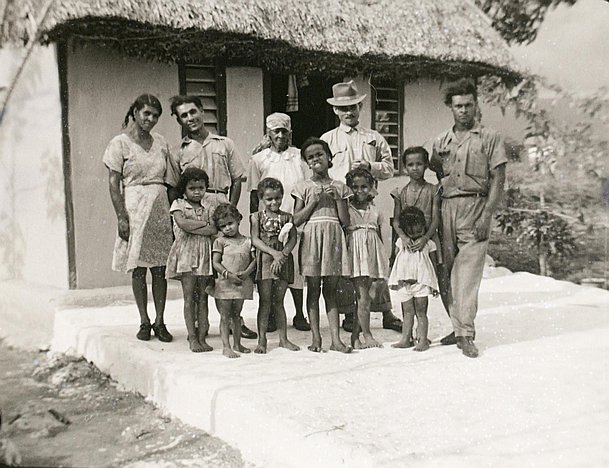
W PBC znajduje się również Archiwum Ignacego Domeyki. Jeden z najsławniejszych polskich geologów i mineralogów przyczynił się do upowszechnienia oświaty w Chile. Pełniąc przez wiele lat funkcję rektora uniwersytetu Universidad de Chile w Santiago, dbał nie tylko o rozwój nauki, ale i również edukacji i kultury. W Chile był ceniony i szanowany. Na jego cześć nazwano pasmo górskie Górami Domeyki (Cordillera de Domeyko), a jedna z miejscowości ma w nazwie jego imię (Domeyko). Polonijna Biblioteka Cyfrowa udostępnia dwie kolekcje listów Domeyki do ówczesnego Ministra Edukacji w Chile. Pierwsza, opisana jako „Delegacion Universitaria”, obejmuje korespondencję z lat 1862–1873. Druga – „Universidad de Chile” z lat 1874–1879 – zawiera listy związane z działalnością Domeyki na stanowisku rektora uniwersytetu na rzecz reformy edukacji w Chile. Korespondencja prowadzona była w języku hiszpańskim.
Warto również wspomnieć o odnalezionym w Bibliotece Narodowej Parlamentu Gruzji im. I. Czavczavadze w Tbilisi rękopisie z 1831 r. To Kurs bibliografii przygotowany przez Łukasza Gołębiowskiego, który jako bibliotekarz Biblioteki Publicznej, a zarazem profesor Uniwersytetu Warszawskiego, miał wykładać bibliografię studentom tegoż uniwersytetu.
Wśród archiwalnych unikatów znajdują się także dokument podróży oraz Dziennik lotów Rajmunda Szejnera, który odbył loty bojowe w Eskadrze 1586 z Włoch (Brindisi) do Polski, w charakterze mechanika pokładowego, w stopniu st. sierżanta. Loty na samolocie Halifax V, ze zrzutami broni, materiałów i skoczków spadochronowych.
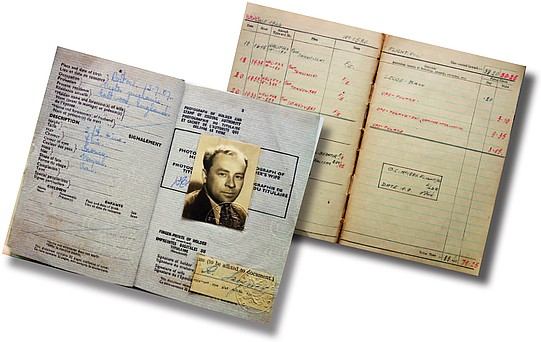
Daty lotów:

W ramach funkcjonowania Polonijnej Biblioteki Cyfrowej oraz Wirtualnego Muzeum Polonii została zrealizowana digitalizacja materiałów Sekcji Polskiej Radia Watykańskiego. Celem i podstawowym zadaniem tego projektu było zabezpieczenie jej materiałów archiwalnych i multimedialnych.
Radio Watykańskie rozpoczęło działalność w 1931 roku, a jego Sekcja Polska została powołana siedem lat później. Do 1948 roku nadawano audycje dwa razy w tygodniu, a później codziennie. Polskie audycje Radia Watykańskiego odgrywały szczególną rolę w czasie II wojny światowej, będąc niejednokrotnie jedynym środkiem przekazywania wiadomości o sprawach kościelnych i narodowych z Watykanu do Polski. Po II wojnie światowej Sekcja Polska Radia Watykańskiego przez długi czas była jedyną rozgłośnią katolicką, której programy można było odbierać w Polsce.
Projekt był zrealizowany przez jednostki trzech uczelni: Wydział Dziennikarstwa, Informacji i Bibliologii Uniwersytetu Warszawskiego, Instytut Dziennikarstwa i Komunikacji Społecznej Katolickiego Uniwersytetu Lubelskiego Jana Pawła II i Akademię Ignatianum w Krakowie. Pracami kierowali prof. Janusz W. Adamowski i prof. Dariusz Kuźmina.
Zadanie zostało zrealizowane w ramach konkursu Ministerstwa Nauki i Szkolnictwa Wyższego DUN (Działalność Upowszechniająca Naukę): w kategorii upowszechnianie – wniosek „Zachować i promować polskie dziedzictwo narodowe – digitalizacja i opracowanie naukowe archiwaliów Polskiej Sekcji Radia Watykańskiego” – 751/P-DUN/2019.

W zbiorach PBC jest również „Cogito dla Polonii” – e-magazyn dla młodzieży polonijnej na całym świecie w wieku 12–19 lat. Wydawcą jest Polskie Bractwo Kawalerów Gutenberga, a partnerem merytorycznym Grupa COGITO. Periodyk porusza tematykę działalności młodzieży polonijnej, nauki języka ojczystego czy historii Polski. Na łamach gazety Polonia sama dzieli się również historiami odkrywania polskich korzeni, opowiada o projektach edukacyjnych, patriotycznych i kulturalnych. Twórcy e-magazynu stali się Polonijnymi Ambasadorami Polskości.
Każde e-wydanie to ok. 40 stron, na których znajdują się:
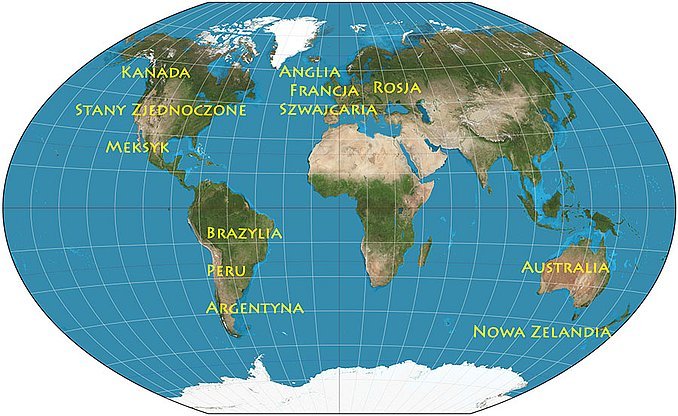
W oparciu o zgromadzony materiał prasowy Wirtualne Muzeum Polonii prezentuje podstawowe informacje o polonijnych archiwach, bibliotekach, instytutach naukowych, muzeach i pomnikach polskich za granicą. Na portalu znajdziemy opisy Polonii w poszczególnych krajach. Ponadto, każde skupisko emigrantów opatrzone zostało obszerną bibliografią, dzięki czemu zainteresowane osoby mogą skorzystać ze starannie wyselekcjonowanych publikacji na badany temat. Co ważne, część z tych źródeł jest zdigitalizowana i istnieje możliwość bezpośredniego pobrania materiałów. Muzeum jest więc przewodnikiem po Polonijnej Bibliotece Cyfrowej. Inicjatorem i kustoszem Wirtualnego Muzeum Polonii, podobnie jak i PBC, na której zbiorach się opiera, jest prof. dr hab. Dariusz Kuźmina z Wydziału Dziennikarstwa, Informacji i Bibliologii Uniwersytetu Warszawskiego, a jego administratorem dr Zdzisław Dobrowolski.